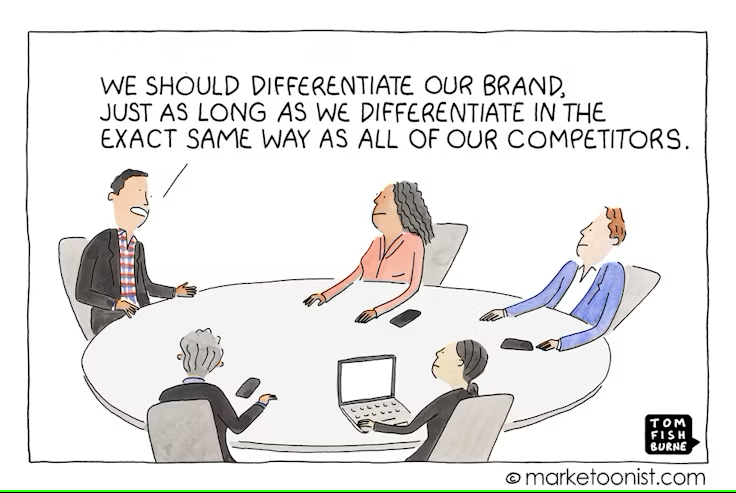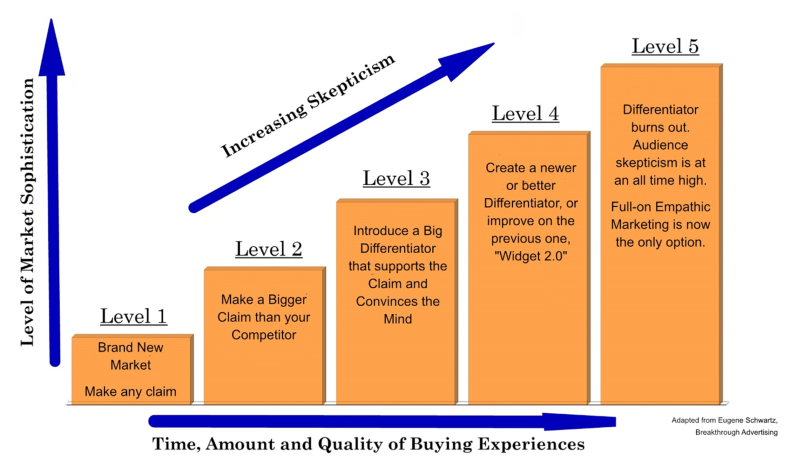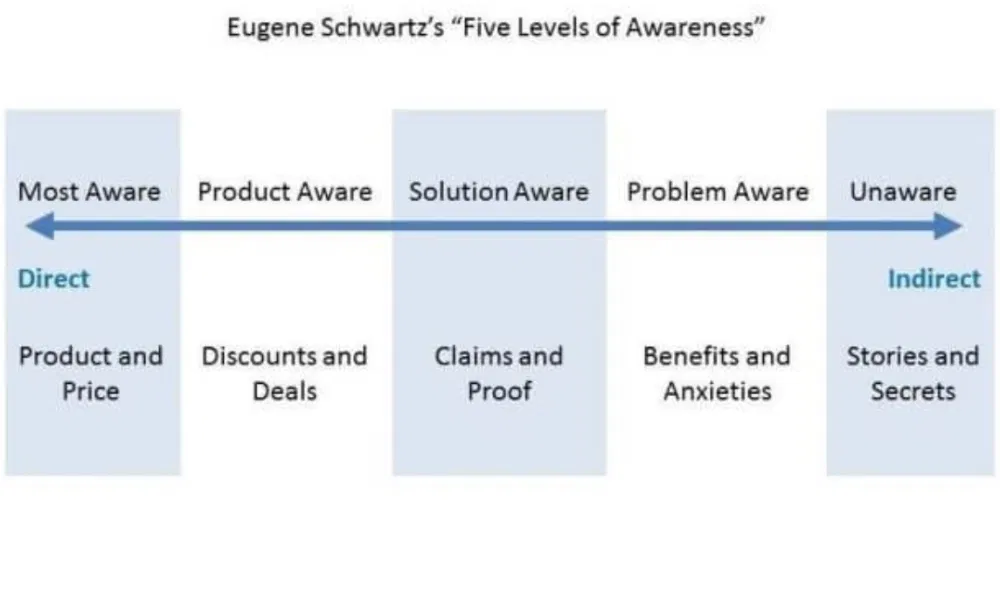
What if your product isn't unique?
Most people when they think of differentiation in marketing, they are always thinking of something in the product that is unique. "What's unique about our product?" they'll ask, then jot down a few run-of-the-mill features and build their entire marketing strategy on "product feature" differentiation. There are two problems with this approach:
- (1) If there's a product feature that's truly unique and is recieved well by customers, it WILL get copied by competitors quickly. So, now marketing can't differentiate on it because everybody else has it.
- (2) Less than 0.1% businesses have true moats that can prevent competitors from copying their differentiated offerings.
If you are among those 0.1% businesses, go ahead and use the "product feature differentiation" path for marketing. The other 99.9% businesses, well, they have to be creative. That's where we come in.
"Undue obsession with differentiation based on trivial USPs" is one of the biggest mistakes marketers make.
- Professor Patrick Barwise, London Business School
Whether your marketing is going to make an impact on your target audience or not largely depends on your ability to take into account these two factors:
-
1. Market Sophistication (a function of how long has the product category been in the market)
-
2. Customer Awareness (a function of how aware customers are about the product category in general and your product in particular)
Let's consider a few examples. Say you are launching a new CRM product.
-
1. Market Sophistication - High - CRM product category has been around for 30 years.
-
2. Customer Awareness - High - most target customers are aware of what a CRM is supposed to do.
Implication - It's extremely difficult to market a CRM product using product differentiation alone. Even if somehow you introduce a set of truly unique features and gather some traction, the existing players will quickly copy your "unique features" and offer those to your prospective customers along with their more established suite of offerings.
Another example. A new eCommerce brand that sells health supplements.
-
1. Market Sophistication - High - health supplement product category has been around for 50 years
-
2. Customer Awareness - Low to Medium - even though the "health supplements" as a product category has been around for a while, many customers who could benefit from a certain supplement may not be aware of the health problems they may have and/or even when they are aware, they may not know that certain supplements can be helpful.
Implication - Easier than marketing a CRM product but still difficult because of the high market sophistication. A marketing strategy based on a combination of "education" and "unique mechanism" is likely to work better. It'd be a very lazy and terrible idea for a health supplement brand to just go to the market with "buy my supplement" campaign and look exactly like hundreds of other supplement brands that are using the exact same messaging.
Different marketing strategies are needed to successfully market different products based on where the product lies on "market sophistication" and "customer awareness" spectrum.


Large companies vs. SMBs (Brute Force vs. Creativity)
Large companies with millions of dollars in ad budget can get away with brute force marketing. It doesn't matter how sophisticated the market is or how aware/unaware target customers are, if you have millions of dollars to run ads on TV, sponsor large sporting events and hog media 24X7, you'll eventually create brand recall.
However, SMEs with limited marketing budget, need to crack the marketing puzzle with more creativity. SMEs can never use brute-force to win marketing game fighting big brand names. That's where these creative ideas truly shine. We love working with SMEs, helping them use creative marketing strategies to successfully fight the big guys.